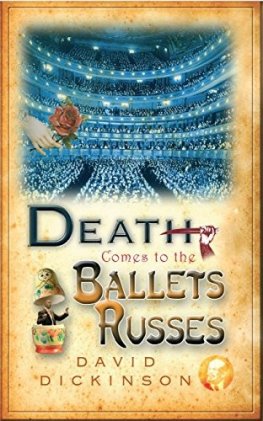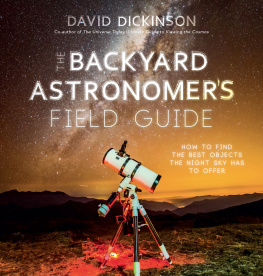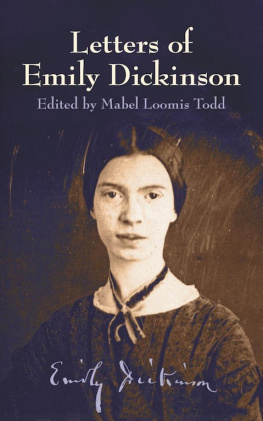David Dickinson - Death in a Scarlet Coat
Here you can read online David Dickinson - Death in a Scarlet Coat full text of the book (entire story) in english for free. Download pdf and epub, get meaning, cover and reviews about this ebook. genre: Detective and thriller. Description of the work, (preface) as well as reviews are available. Best literature library LitArk.com created for fans of good reading and offers a wide selection of genres:
Romance novel
Science fiction
Adventure
Detective
Science
History
Home and family
Prose
Art
Politics
Computer
Non-fiction
Religion
Business
Children
Humor
Choose a favorite category and find really read worthwhile books. Enjoy immersion in the world of imagination, feel the emotions of the characters or learn something new for yourself, make an fascinating discovery.

- Book:Death in a Scarlet Coat
- Author:
- Genre:
- Rating:5 / 5
- Favourites:Add to favourites
- Your mark:
- 100
- 1
- 2
- 3
- 4
- 5
Death in a Scarlet Coat: summary, description and annotation
We offer to read an annotation, description, summary or preface (depends on what the author of the book "Death in a Scarlet Coat" wrote himself). If you haven't found the necessary information about the book — write in the comments, we will try to find it.
Death in a Scarlet Coat — read online for free the complete book (whole text) full work
Below is the text of the book, divided by pages. System saving the place of the last page read, allows you to conveniently read the book "Death in a Scarlet Coat" online for free, without having to search again every time where you left off. Put a bookmark, and you can go to the page where you finished reading at any time.
Font size:
Interval:
Bookmark:
David Dickinson
Death in a Scarlet Coat
The stately homes of England!
How beautiful they stand,
Amidst their tall ancestral trees,
Oer all the pleasant land.
The deer across their greensward bound
Through shade and sunny gleam,
And the swan glides past them with the sound
Of some rejoicing stream.
Felicia Hemans, 18281
It was very cold at nine oclock on a breezy autumn morning in Lincolnshire. The mounted men and the handful of mounted women of the Candlesby Hunt were ranged round the forecourt of Candlesby Hall. Two outlying pavilions were connected to the wings of the main building by a couple of long walls with large niches left for statues of classical antiquity. As with so much of Candlesby Hall, ambition outran reality. Two hundred years after their creation the niches were still waiting for Cicero and Caesar, Pericles and Plato to drop in from Greece and Rome and grace the front of a gentlemans house in the East of England. They were as empty today as they had been on the day they were created. The pavilions themselves were joined by a tall black railing with a grand opening in the centre.
The wind had abated since last nights gales, but clouds of fallen leaves still swirled and eddied in the forecourt. Inside the square formed by the house and the pavilions was a circle of grass with a path round the edges and a broken fountain in the centre. Even in the gloom the hunters coats of scarlet and black and dark blue, with their cream and white breeches and stocks, made a brave show. The conversation was animated, men and women speculating about the forthcoming hunting season. One or two claimed to have spotted foxes trotting through the countryside in the weeks before. Latecomers were saying good morning to the hunt officials. The true aficionados were more excited than they would have cared to admit. They could hardly wait for the sheer delight of the hunt, the wind in your face, the rain in your hair, the sensation of speed as your horse raced after the scarlet coats at the front, the alarming moment when it left the ground to clear another hedge or wall, the cry of the huntsmans horn, the shouts of your friends close by, on and on and on across the countryside with the fox smarter than the hunt today and only a handful of riders left in pursuit. It made the blood race, even to think about it.
People more interested in architecture than in hunting might have paused after a careful inspection of the great house behind them. On top of the front was a group of three statues. Only one had all its limbs and features intact. The others were suffering from various ailments heads fallen off, arms left as stumps, stone staff of office broken at the hilt. The great pillars jutting out at the front of the house were no longer of uniform colour but stained with dark green and a dirty yellow as if they had some terminal disease. On the top floor, where the servants had their quarters, half a dozen windows were broken and remained unrepaired.
The Candlesby butler, old, white-haired and stooping over his tray, was moving through the crowd with his stirrup cup, a mixture of port laced with brandy to fortify the hunters against the cold. The master was not here yet. The master was often late. Cynics whispered that the master was not very good at getting up the morning after the night before. Nobody would have dared say such a thing to his face, for his temper was the most feared in the county, the violence of his language capable of reducing strong men to tears.
Three of his five sons were here today, turned out for the hunting field like everybody else: Richard, Lord Bourne, the name inherited by all Candlesby eldest sons, thirty years old, heir to Candlesby Hall and what remained of its estates, who had inherited so many of his fathers characteristics; Henry, the second son, three years younger than Richard, who had inherited most of his fathers vices and none of his virtues, if any of those had ever existed; and Edward, the third son, twenty-five years old, who seemed to be having trouble controlling his horse. An earlier Dymoke, the original family name, Sir Francis Dymoke, had been made an Earl by Charles the Second for services to flattery according to the cynics. He had taken the name of Candlesby in Lincolnshire for his earldom and his great house, originally built on lands given him by his King.
Still the master did not appear. The officials and the field master and the whippers-in and the terrier men exchanged anxious glances. Some of the hunting party began peering in at the windows of the house to see if there was any sign of the master in there, checking the buttons on his coat perhaps, shouting at one or more of the servants. He had always been an eccentric master, John Dymoke, Earl of Candlesby, ever ready to change the hunting colours one year, or alter the dates of the opening and closing of the hunting season another. But nobody could remember a day when the master hadnt done his duty to the hunt and led them out across the county in pursuit of the fox wherever the chase would lead, however many broken bones might be acquired along the way. Those with highly strung or nervous horses took them on little sorties around the circle of grass. The hounds were swarming about on the far side of the railings under the watchful eye of the huntsman, barking and yelping as they waited for the chase. The more adventurous spirits took a second or a third helping of the stirrup cup, saying it would help them over field and fence. A number of people were looking at their watches now. Some were thinking of abandoning the hunt and going home. If the master failed to turn up there would probably be a row about who should be the acting master that might go on all morning.
It was the butler with his tray of empty stirrup cups who saw him first, or thought he might be seeing him. From the forecourt of Candlesby Hall a road led out of the gates in the railing, and then straight as straight could be across hundreds and hundreds of Candlesby acres for well over a mile until the ground dipped down and the road was lost from view. Something was moving very slowly along this road, past the scattered branches blown down in the great storm the night before. It might have been just a horse, or it might have been a man walking beside a horse. A hunting bird followed the little procession, like a mourner at a funeral.
The butler whispered something into Richards ear and continued to peer down the road. Gradually the other members of the hunt began staring at the little procession advancing so slowly towards them. The huntsman appeared to think of blowing a message of some sort on his horn but thought better of it. There was definitely a horse, and the animal seemed to be carrying something fairly heavy. There was definitely a man, walking beside the horse, turning his cap round and round in his hand.
The riders began to back their horses up against the walls, blocking out the niches meant for the heroes of antiquity. Henry Dymoke suddenly noticed that the little parapet at the top of the pavilion to the right of the entrance was broken. He could just make out sections of broken pillar lying across each other. The hunt was growing apprehensive now. There was something uncomfortable in the little procession of horse and human making their way ever so slowly towards the great house. The butler made another round with the last of his stirrup cup. Nobody spoke, all eyes locked on the party coming toward them. There was definitely a package on the back of the horse, completely covered by a couple of blankets. There was, Henry Dymoke with his quick eyes noticed, something familiar about the shape on the horse. He knew, before anybody else, that it was his fathers body he was looking at, making its last melancholy progress back to the house where he had been born.
Font size:
Interval:
Bookmark:
Similar books «Death in a Scarlet Coat»
Look at similar books to Death in a Scarlet Coat. We have selected literature similar in name and meaning in the hope of providing readers with more options to find new, interesting, not yet read works.
Discussion, reviews of the book Death in a Scarlet Coat and just readers' own opinions. Leave your comments, write what you think about the work, its meaning or the main characters. Specify what exactly you liked and what you didn't like, and why you think so.




